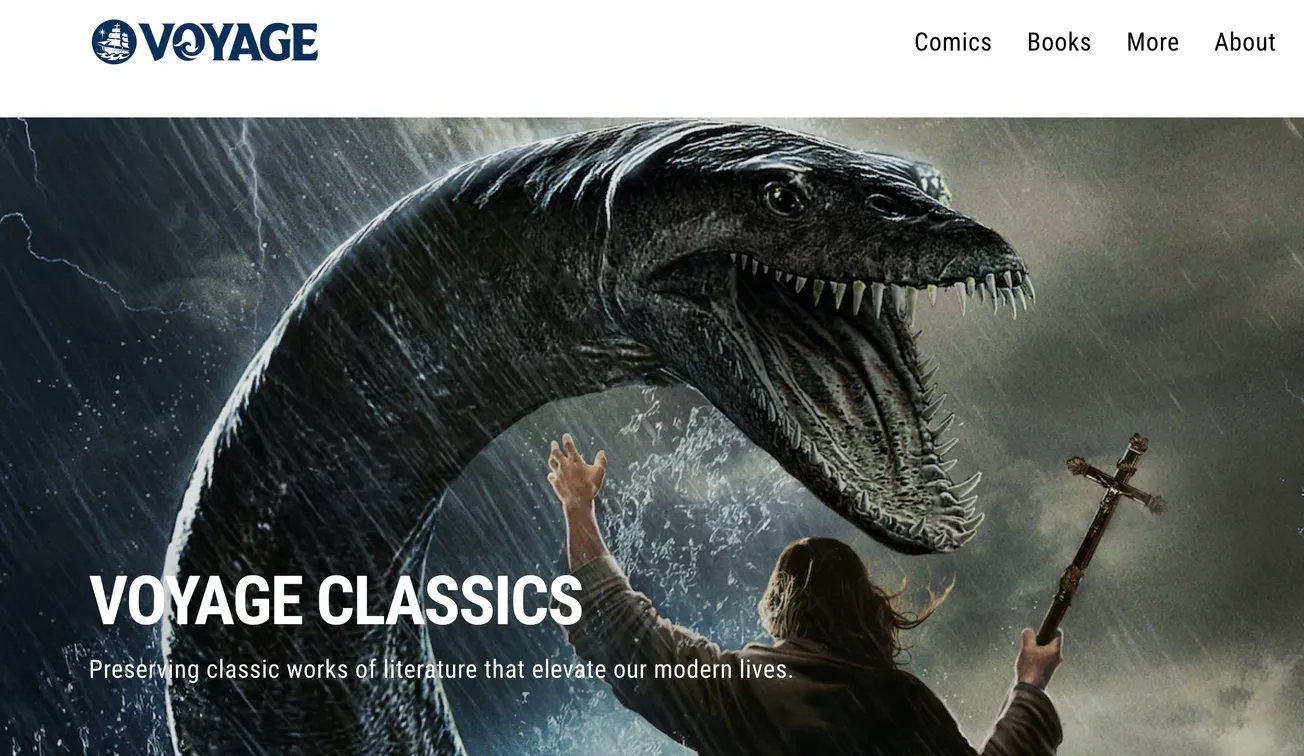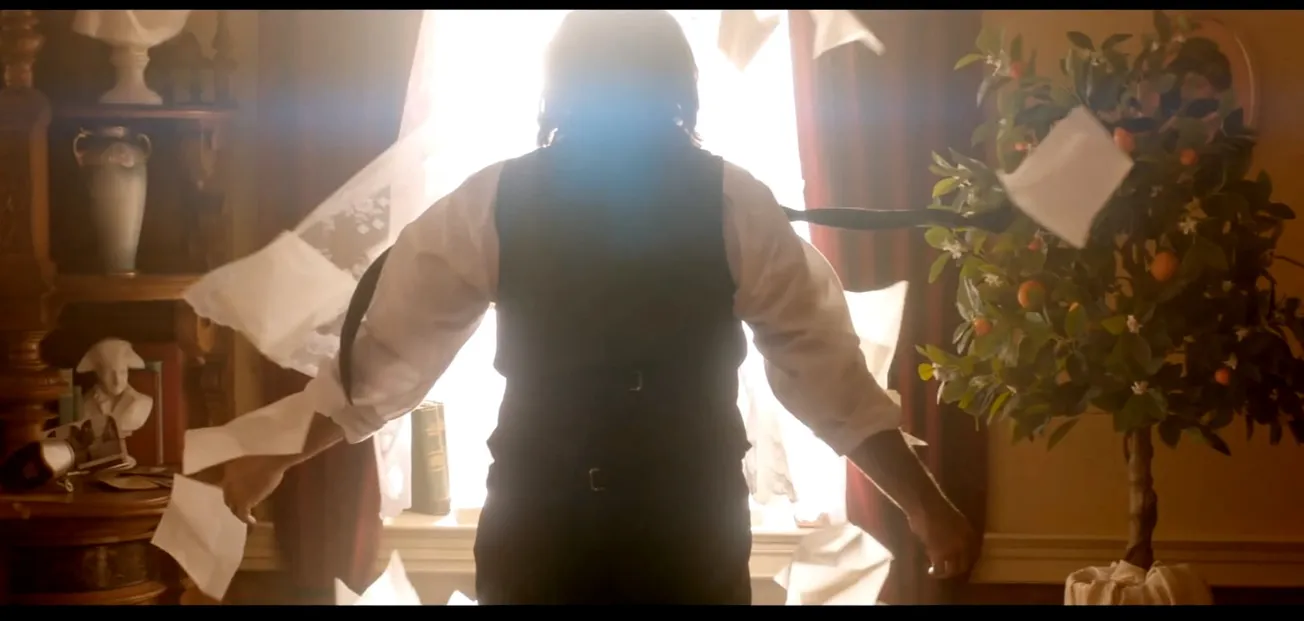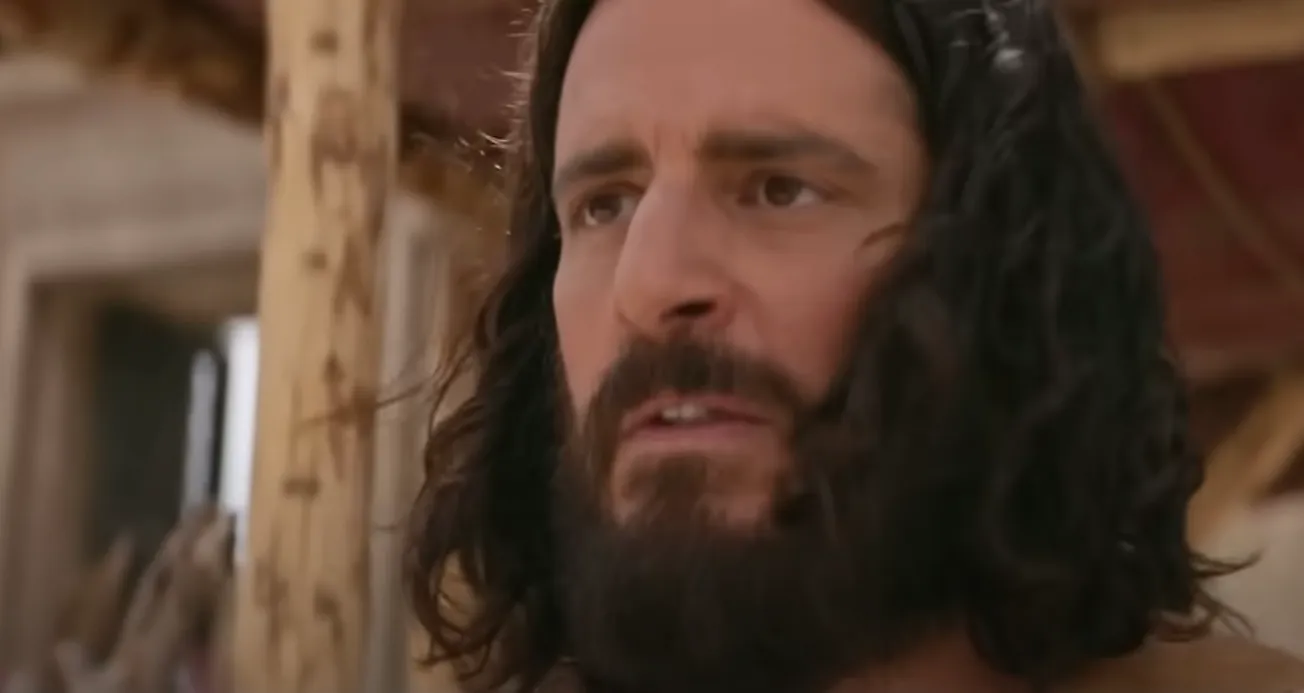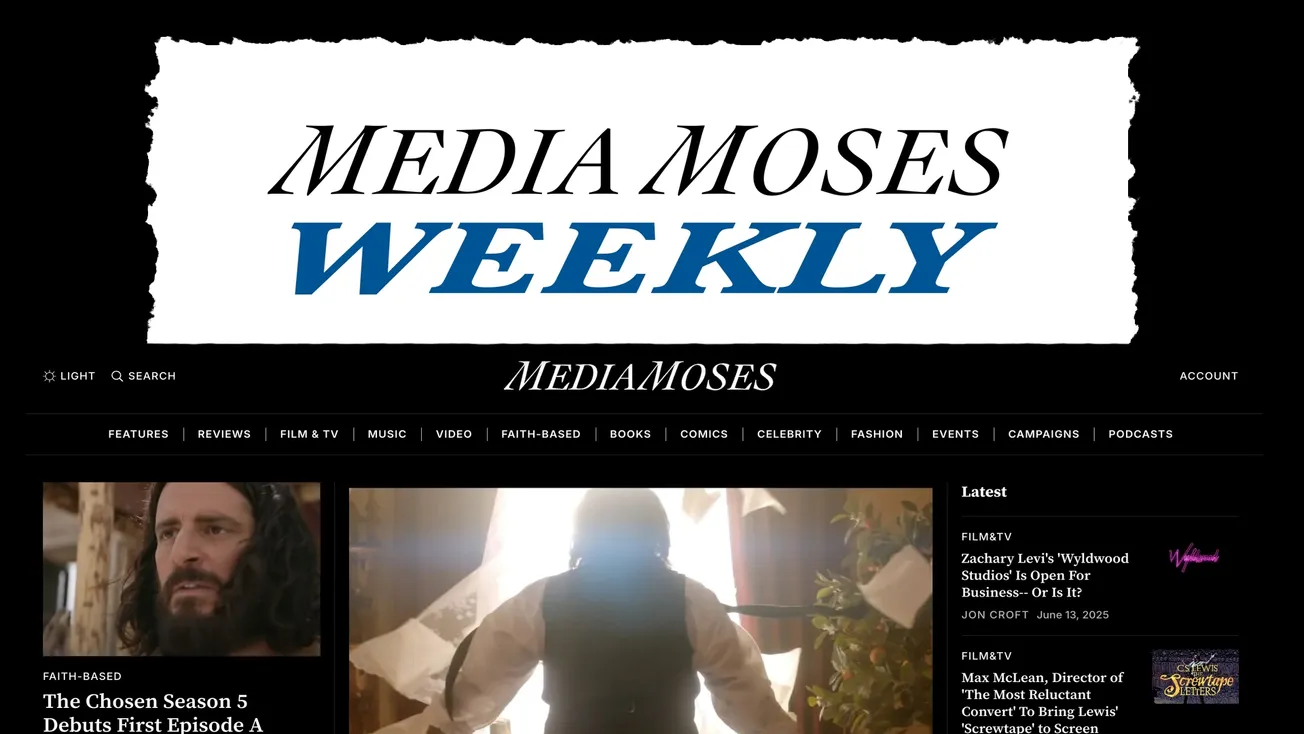Catholic myth-makers, Voyage Comics, have some of the best content available about Christian storytelling with a modern focus. But, let’s make this clear. This is not a modern storytelling outfit, no. This is a “Mythopoeic” storytelling venture with strong conservative values embedded.
They make: comics, graphic novels, podcasts, merch, and they have a great blog, all found here and at voyagecomics.com.
Wait- what is Mythopoeia? From JRR Tolkien’s poem, Mythopoeia, who also coined the term, we can see the slivers of truth, that myth is not merely derived from popular fictional tale-telling, but it is the skillful telling of stories that contain the foundation stones of a society. As Tolkien reminded Lewis, “it just so happens” that the Christian telling (or myth-making) is the true myth, an accurate representation of the universe as God created it. If you know the Bible and you are a believer you know this description of Christian myth-making is true, because you know this truth-telling (through the Bible) is true. Mirrored in this poem, Mythopoeia, and in these concepts, CS Lewis saw the truth of God and was saved. So, this concept is potentially very powerfully impactful to all Christians who tell stories and make art.
Voyage wrestles with some of these themes of mythology and storytelling here on their podcast.
Likewise, these writers and publishers craft stories that reflect powerful Biblical themes as well as historical Christian & Catholic experiences. From the lives of the Saints, to the epic fictional stories of superheroes who champion Christian values, Voyage understands and reflects the mythmaking heritage that we value here at Media Moses. From the Inklings of the early to mid-1900’s: Tolkien, Lewis, and Williams, to the Romantic fairy-tellers of George MacDonald’s latter-days of the 1800’s to the epic poetry from Milton & Dante, they champion this kind of western civilizational scholarship. These are the same values I champion as a conservative Christian artist. Tolkien simply codified this idea better in his poem, as a more “intentional mythmaking” but many have upheld these values throughout history. Even the Greek Mythmakers intentionally sought to create myth, although holding the veracity of such stories far more loosely in the hand, this was not lost on the audience or the reader. The question then becomes, “Does the Christian myth remain true to the reader?”
No amount of ignoring or disregarding the tales will do. One must squarely face the truth of the tales with authentic self-examination. In doing so, just as any scientist, journalist, or mathematician might examine the facts, a reader of myth must remain open to the truths of such stories, whether they be embedded in overt themes, in mysterious messages, or in the hidden strength of our heroic characters. By examining these things formerly skeptical journalists like Lee Strobel, scientists Iike Blaise Pascal, and writers like CS Lewis must wrestle with the veracity of the Biblical mono-myth which contains the worldview that Christians ascribe to and believe in. From these examinations great works are made to the glory of God.
Take it as a nice story if you like, many will dig deeper than the lines of the page, and will seek to understand why so many died for these ancient manuscripts to remain uncluttered by private interpretation and imperfection. Our mirrored reflection of the image of God is pleasing to the Lord, far be it from us to understand why He loves us so much. So, we obey him by also telling stories, creating inventions, and instilling purpose and value into our children, so they will likewise value the divine and ineffable found in God’s creation.
These stories, like Brave Books, and The Tuttle Twins, are fit to learn a great deal from, and as kids get older and need more mature storytelling they may find that literature like the classics, the epics, and the romantics can inspire just like today's comics for the older reader. I am currently stuck on ancient literature such as the Iliad and the Odyssey, fairy tale authors such as George MacDonald, and Bible stories, such as can be found in Art Ayris' Kingstone Comics. But, this is another story for another day.


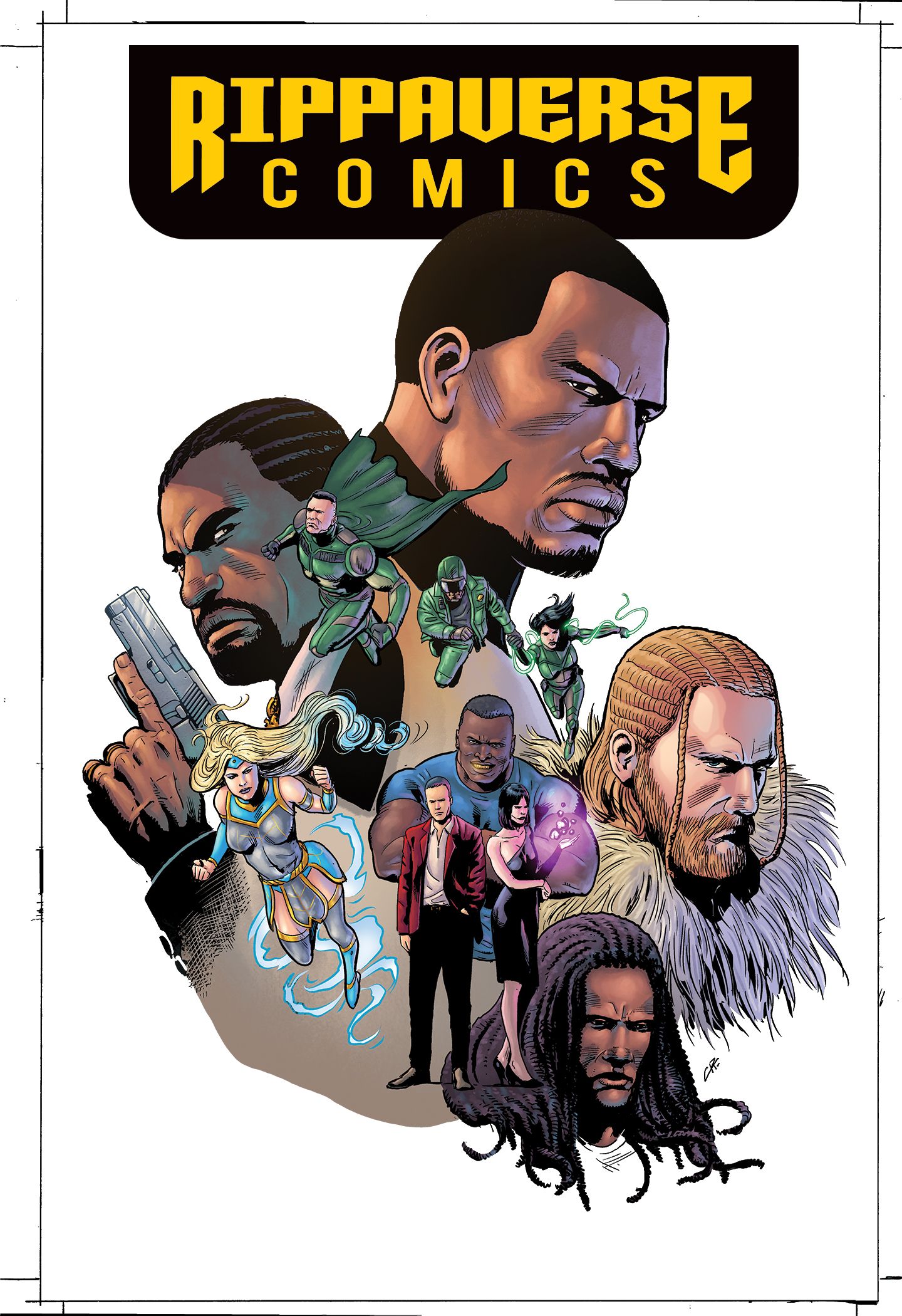


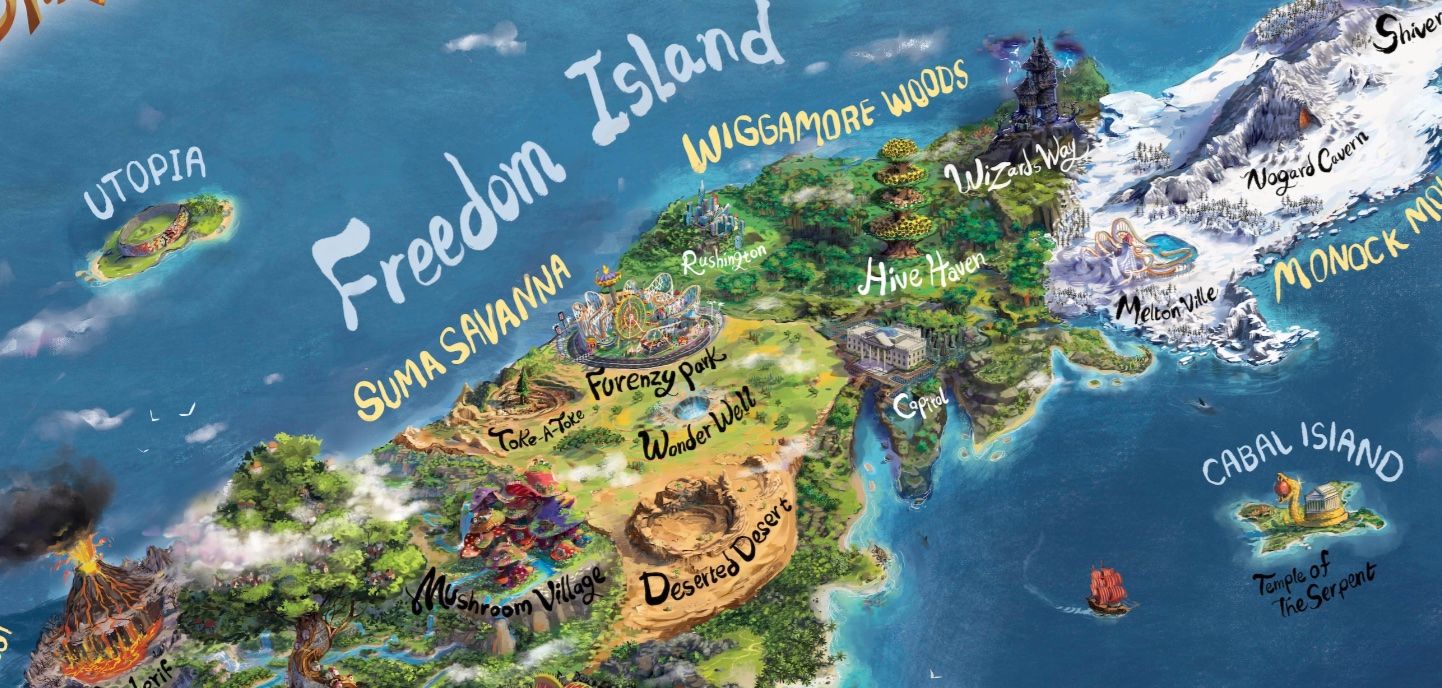
Did you enjoy this article? Have you read any of the work mentioned here? Do you enjoy reading classic literature more or the comics more? Let us know in our social media, or comment below (with subscription).
Voyage Comics instills legendary values into the everyday @VoyageComics #VoyageofaLifetime https://t.co/6eJhs14ffk via @themediamoses
— Media Moses (@themediamoses) October 21, 2023


